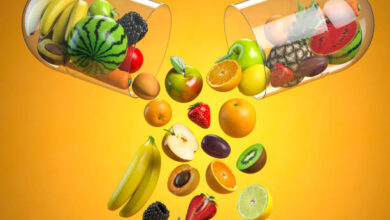
In the last few decades, technology has transformed every aspect of our lives, and the food industry is no exception. The convergence of innovation, data, and culinary arts has given birth to a thriving sector known as Food Tech. This emerging field encompasses a wide range of technologies and applications, all aimed at revolutionizing the way we produce, prepare, and consume food. In this article, we will explore the rise of food tech, its impact on various aspects of the food industry, and the exciting possibilities it holds for the future.
-
The Evolution of Food Tech
The concept of food technology is not new. Humans have been using technology to enhance food production and preservation for centuries. However, recent advancements in digital technology, artificial intelligence, biotechnology, and automation have accelerated the growth of this sector. Food tech now encompasses a broad spectrum of innovations, from smart kitchen appliances to sustainable agriculture practices.
-
Transforming Agriculture
One of the most significant areas of transformation within food tech is agriculture. Traditional farming methods are facing numerous challenges, including climate change, resource scarcity, and the need to feed a growing global population. Food tech is stepping in to address these issues through innovative solutions.

a. Precision Agriculture
Precision agriculture, also known as smart farming, uses advanced technologies like GPS, sensors, and drones to optimize crop production. Farmers can monitor soil conditions, track crop health, and precisely apply fertilizers and pesticides, reducing waste and increasing yields. This not only improves the efficiency of farming but also reduces the environmental impact.
b. Vertical Farming
Vertical farming is a revolutionary approach to growing crops indoors, in vertically stacked layers. Controlled environments with LED lighting, automated systems, and precise climate control allow crops to grow faster and with less water than traditional methods. This method is particularly useful in urban areas where land is limited.
c. Genetic Engineering
Biotechnology plays a crucial role in food tech, enabling scientists to modify crops for increased yield, resistance to pests and diseases, and improved nutritional content. Genetic engineering has the potential to address food security challenges by creating hardier, more nutritious crops.
-
Sustainable Food Production
As concerns about environmental sustainability and food waste grow, food tech is introducing innovative solutions to reduce the industry’s ecological footprint.
a. Plant-based and Lab-Grown Meat
Plant-based meat alternatives and lab-grown meat are gaining popularity as sustainable alternatives to traditional livestock farming. These products require fewer natural resources, emit fewer greenhouse gases, and eliminate animal welfare concerns. Companies like Beyond Meat and Impossible Foods are at the forefront of this movement.
b. Food Waste Reduction
Food tech companies are tackling the global issue of food waste by developing apps and platforms that connect consumers with surplus food from restaurants and grocery stores. Additionally, technology-driven supply chain management systems help reduce food spoilage during transportation and storage.

-
Enhancing Food Preparation
Food tech is not limited to the production and sourcing of ingredients; it is also transforming how we prepare and cook our meals.
a. Smart Kitchen Appliances
Smart kitchen appliances like ovens, refrigerators, and cooking devices are equipped with sensors and connectivity features. These appliances can be controlled remotely through smartphones and can even suggest recipes based on available ingredients.
b. Meal Kit Delivery Services
Meal kit delivery services offer pre-portioned ingredients and easy-to-follow recipes, making it convenient for people to cook at home. Technology enables personalized meal recommendations and ensures that ingredients are fresh and delivered on time.
c. Culinary Automation
Automation is making its mark in commercial kitchens as well. Robots and AI-powered machines are assisting chefs in food preparation, assembly, and even food delivery. This not only improves efficiency but also reduces the risk of contamination in food preparation.
-
Revolutionizing Food Delivery
Food delivery services have undergone a significant transformation thanks to food tech.
a. Delivery Apps
Food delivery apps like Uber Eats, DoorDash, and Grubhub have revolutionized the way we order food. These platforms offer a vast selection of restaurants, quick delivery times, and real-time order tracking.
b. Drone and Autonomous Vehicle Delivery
Companies are experimenting with drone and autonomous vehicle delivery for food orders. This technology has the potential to increase delivery speed while reducing costs and emissions.
c. Ghost Kitchens
Ghost kitchens, also known as virtual kitchens, are commercial spaces designed solely for food production, with no dining areas. These kitchens cater to online orders only, optimizing efficiency and reducing overhead costs.

-
Personalized Nutrition
Food tech is enabling a more personalized approach to nutrition and dietary choices.
a. Dietary Apps and Wearables
Dietary apps and wearables can track an individual’s food intake, analyze nutritional content, and offer personalized dietary recommendations. These tools help people make informed choices based on their health goals and dietary restrictions.
b. 3D-Printed Food
3D printing technology is being used to create customized food products. This has potential applications in healthcare, as meals can be tailored to meet specific dietary needs for patients with medical conditions.
-
Food Safety and Traceability
Food tech is also playing a vital role in ensuring food safety and traceability.
a. Blockchain Technology
Blockchain technology is being used to create transparent and tamper-proof supply chain systems. Consumers can trace the origin of their food products and verify their authenticity.
b. Food Safety Sensors
Advanced sensors and monitoring systems are used to detect contaminants and pathogens in food products, helping to prevent foodborne illnesses and ensuring food safety.
-
Challenges and Ethical Considerations
While food tech brings about numerous benefits, it also raises ethical and societal concerns. These include issues related to data privacy, the potential for job displacement due to automation, and the need for regulation to ensure food safety and prevent misuse of technology.

-
The Future of Food Tech
The future of food tech is incredibly promising, with several exciting trends on the horizon.
a. Cultured Meat
Cultured meat, grown in laboratories from animal cells, has the potential to become a mainstream alternative to traditional meat. As technology advances, it is expected to become more affordable and widely available.
b. AI-Driven Nutrition
Artificial intelligence will continue to play a significant role in personalized nutrition. AI algorithms will become more sophisticated in analyzing dietary data and making tailored recommendations.
c. Sustainable Packaging
Food tech will also address the issue of plastic waste by introducing sustainable packaging solutions made from biodegradable materials or innovative alternatives.
d. Space Food Tech
As humanity explores space and looks to establish colonies on other planets, food tech will play a crucial role in developing sustainable and nutritious space food.
Conclusion
The rise of food tech is transforming every aspect of the food industry, from how we grow and source ingredients to how we prepare and consume meals. With innovations in agriculture, sustainable food production, personalized nutrition, and food safety, food tech is revolutionizing our relationship with food. As we look to the future, the possibilities are endless, and the potential for a positive impact on our health, the environment, and society as a whole is vast. Embracing these technological advancements responsibly and ethically will be key to harnessing the full potential of food tech for the benefit of all.





